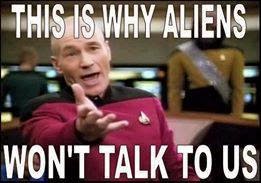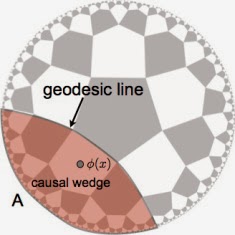There was no doubt that the sound of the blast he triggered could be heard by the entire settlement. That should have been more than enough signal for them to escape.
Dern made it to the first level and leaned against a wall. Pain, verging on debilitating, raced through his body with savage abandon. He clenched his jaw, drawing on Flare to stay in motion. He headed toward a door at the end of a pathway leading from the stairwell. Before he could extend a hand to open it, the door burst off its hinges. An armored figure eclipsed the doorway.
Dern tried to back away, but a cold, metal grip seized his neck, yanking him outside.
“My hunch paid off,” came a wretchedly familiar voice.
Dern made out three men, one woman, their weapons trained on him.
One of the men, Tunnel, stepped forward, a cruel sneer etched into his face.
The former SD soldier clutched his captor’s wrist in a vain effort to wrench himself free. Metal fibrous fingers on his neck constricted. Dern flailed with all of his diminishing strength. He struggled to breathe, his world spiraling into darkness.
“Wait, don’t kill him, yet,” Tunnel said, placing a restraining hand on the enforcer’s shoulder.
“Fucker killed my boss,” the enforcer growled, tilting a helmeted head ever so slightly in Tunnel’s direction.
Tunnel pointed his pistol at Dern’s dangling right leg just above the knee and fired.
Dern would have howled in pain were his airflow not reduced to a trickle by an unyielding grip to his throat.
“He’ll die,” Tunnel assured the armored man. “But slowly, slowly enough where he’ll wish he were never born. And in the process we might extract from him the location of his friends. They’ll die slowly too, maybe slower than him.”
The armored man unflexed his fingers dropping Dern at his feet like a sack of rubbish.
Dern heaved in a few ragged breaths before lunging on one leg for the enforcer’s blaster. He grabbed the weapon’s barrel, ripping it from the thug’s grip. Turning the Tanner around, he blasted the enforcer point blank in the head.
A chunk of helmet tore away in a fiery gout. The armored man toppled backwards, crashing on his back with a heavy thud.
“No!” Tunnel fired on Dern, hitting the former SD soldier in the left rib.
Dern leveled the Tanner on his nemesis and a bright bolt flared from its muzzle like a flaming sword of judgment.
Tunnel’s goons opened fire, striking Dern in the shoulder and upper chest, throwing off the latter’s aim.
What would have been a headshot, ended up hitting Tunnel’s gun arm. The powerful beam blasted the hijack leader’s pistol to molten fragments. The hand holding that weapon was blown away well past the wrist.
Three more flachettes slammed into Dern’s body.
Dern stumbled from the impacts, but managed to drop low and pour out a devastating arc of fire that carved through Tunnel’s goons like a hot blade through cold gel.
Their beam-riddled bodies thrashed in a storm of flesh-rending energy before collapsing in bloody, smoking heaps.
All the while, Tunnel was on his knees staring despondently at a sizzling stump where his right hand used to be.
Harnessing what little strength he had left, Dern limped determinedly toward his downed foe.
He kicked Tunnel square in the chest, knocking the latter on his back, then stamped a foot on the criminal’s wound.
He applied, grinding, unrelenting pressure to Tunnel’s stump, eliciting a blood curdling cry from his opponent. Had he listened to the vengeful chorus in the back of his head, he would have gladly prolonged the suffering he was inflicting.
Instead, he removed his foot and stepped back. Never would he stoop to the sadistic level of a murdering bandit.
Tunnel glared up at the former SD soldier, unbearable pain and hatred twisting his face into a demonic caricature of itself. “You…you’re already…dead! You won’t survive this day! No way you survive this day!”
He was right. Dern reconciled himself to the accuracy of that prediction. No matter how hard the Flare worked to heal him, his wounds ultimately were fatal. Bottom line, he was dying. He felt himself slipping slowly into oblivion. He didn’t have the strength to fight his demise. In fact he welcomed Death.
“I agree with you,” Dern said with a faint smile. “I’ve reached the end of my days. And so have you. You get to go first.” Dern pressed the rifle’s muzzle to Tunnel’s forehead and triggered it.
When the smoke of a point blank discharge cleared, nothing existed above the hijacker’s brow line but a smoldering little crater fused with scorched pieces of brain and skull.
A growing remnant of Hooper’s enforcers gathered at the end of the alley.
Dern tried to raise his rifle, but severe injuries hobbled him. He fell to the ground. Fumbling to get his rifle into position, he rolled on his side, coughing up blood.
Maybe he should point the rifle at himself, he thought. The approaching mob looked too worked up to deliver him the mercifully quick death he would have preferred.
A strong breeze brushed over him. Dern looked up, squinting in disbelief.
What appeared to be a Coalition recon drone hovered above at ground hugging altitude.
Assault rifle rounds smacked against the drone’s hull. The drone soared toward the threat, crimson beams flickering from its raptor wings like shards of glass. Half the mob was cut to pieces. The rest scattered in a wild panic.
Dern witnessed the drone’s assault and then closed his eyes, waiting for death to take him.
After several minutes, he stopped breathing…
He opened his eyes. Dimness surrounded him. He found himself in a prone position, face up. He glanced to his left, saw a bio display and recognized that he was inside a stasis tube. Confused, he tried to clear his muddled head. Flashes of memories zipped through his mind, coalescing into the realization that he shouldn’t have been alive.
The stasis cover retracted and light poured into his confinement.
A face he recognized came into view. A woman’s face.
It took a moment for Dern to connect a name with that face. “Alita?” He croaked in a voice he hadn’t used in…how long?
“Dern, how are you doing? The doctor decided it was ok to wake you.” Alita smiled, pressing a hand to Dern’s shoulder. “No, don’t try to get up.”
Dern managed a self-deprecating grin. He couldn’t move if he wanted to. His body felt heavier than a block of lead.
“Where…am I?”
“You’re on a Coalition patrol ship, in the medical bay. You’ve been in a medical stasis tube since we were rescued seven months ago.”
“Seven…months?”
“A Coalition patrol arrived in response to my distress signal.” Alita’s smile brightened. “My signal got through. They came in the nick of time. You were dead, but not dead enough to be too far-gone. Their doctors revived you and placed you in this tube for extensive treatment.”
Dern could only marvel at the concept of being dead, but not dead enough. The wonders of Coalition medicine.
“Where are we going?”
“You’re going to be dropped off on Talham at a top rehab center. The doctor expects you to make a full recovery there. I’m told it’s the best in Coalition space. Me, I’m going home to Earth for a very long period of rest and relaxation.”
“You’ve definitely earned it.” Dern hefted a forearm, offering a thumbs up to his friend. “Good job back there.”
Alita waved away the compliment. “We’d have never gotten off that planet alive if it weren’t for you.” She lowered her voice. “You didn’t hear this from me, but word of your exploits spread to the highest levels in the Coalition. You’re going to get a reward.”
“A reward?”
“Yes, you’re getting a new suit.”
“A…new suit?”
“A scaled down version, like your old one, but yeah.”
The news gave Dern mixed emotions. He felt so attached to the old suit it became a part of him, even when he wasn’t wearing it. It was a beautiful, familial, symbiotic feeling. Yet, when he destroyed it, a euphoric sense of liberation came over him. Was he ready to receive a new suit? Renew the addictive meld between man and machine?
No more questions. No more concerns. From now on he would look to the future with optimism. “I guess I’ll be reporting to my new job after all.”





